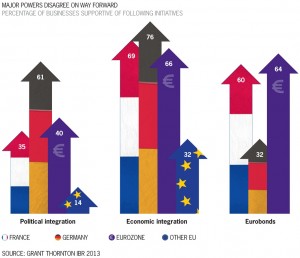-
國內財務簽證及PCAOB財務簽證
真正讓我們與眾不同的是我們服務客戶的經驗,讓正大所能夠在客戶服務上面創造更多的價值
-
稅務簽證
國稅局對於優質會計師事務所出具之報告作書面審核,公司被選案查核機率較低
-
營業稅簽證
本所採用Grant Thornton Voyager 軟體及其他軟體工具等,來提升工作效率
-
公開發行及上市櫃專案輔導與規劃
本所特將會計師與經理群之菁英分成八大部,組成團隊並提供最迅速而完善之專業服務
-
IFRS專區
分享Grant Thornton International之國際財務報導準則專業服務團隊及成員所內專家之寶貴經驗
-
移轉訂價服務
移轉訂價服務
-
跨國交易租稅規劃
跨國交易租稅規劃
-
外國專業投資機構之稅務代理人(FINI/FIDI)
外國專業投資機構之稅務代理人(FINI/FIDI)
-
所得稅法第4條,第8條及第25條等專案申請
所得稅法第4條,第8條及第25條等專案申請
-
租稅協定之專案申請
租稅協定之專案申請
-
租稅獎勵申請
租稅獎勵申請
-
稅負平衡政策訂定與假定稅計算
稅負平衡政策訂定與假定稅計算
-
代為計算薪資及各項扣繳
代為計算薪資及各項扣繳
-
資遣通報
資遣通報
-
處理薪資轉帳事宜及繳納扣繳稅款
處理薪資轉帳事宜及繳納扣繳稅款
-
勞保賠償給付申請
勞保賠償給付申請
-
勞健保,二代健保及退休金之申報及繳納
勞健保,二代健保及退休金之申報及繳納
-
年底開立扣繳憑單
年底開立扣繳憑單
-
IT 顧問服務
IT 顧問服務
-
PRIMA 顧問服務
PRIMA 顧問服務
-
營運計劃書編制
營運計劃書編制
-
績效考核服務
正大聯合會計師事務所協助企業進行績效制度建立及優化,創造勞資雙贏的局面。
-
沙賓氏法案第404條遵循查核
沙賓氏法案第404條遵循查核
-
內部稽核服務
內部稽核服務
-
協議程序(併購交易實地查核)
協議程序(併購交易實地查核)
-
風險管理服務
協議程序(併購交易實地查核)
-
舞弊調查服務
舞弊調查服務
-
電腦鑑識服務
電腦鑑識服務
-
外籍人士工作證申請
外籍人士工作證申請
-
商業文件英日文翻譯服務
商業文件英日文翻譯服務
-
公司、分公司、行號設立登記
公司、分公司、行號設立登記
-
外商分公司、辦事處設立登記
外商分公司、辦事處設立登記
-
陸資來台投資設立登記
陸資來台投資設立登記
-
行政救濟
行政救濟
-
企業法律諮詢
企業法律諮詢
-
破產與限制
破產與限制
-
公司解散和清算
公司解散和清算
-
供應商和員工背景調查
供應商和員工背景調查
-
存證信函草稿服務
存證信函草稿服務
-
中英文協議的準備和審查
中英文協議的準備和審查
-
放寬限制出境
放寬限制出境
-
勞動法合規與勞資談判
勞動法合規與勞資談判
-
企業和個人資產規劃
企業和個人資產規劃
-
企業評價服務
企業評價服務
-
ESG 確信報告及相關顧問業務
正大聯合會計師事務所取得了金管會授權辦理 ESG 確信業務(永續報告及溫室氣體)。 目前已經協助許多企業辦理ESG相關業務,如需更多相關資訊,歡迎與我們ESG負責的會計師聯絡。
-
網際網路購物包裝減量會計師確信報告服務
「公司之資本額、實收資本額或中華民國境內營運資金」達1.5億元以上,或自有到店取貨據點數達500以上之網際網路零售業,在包裝減量方面在包裝減量方面,應依平均包裝材減重率或循環箱(袋)使用率規定擇一辦理,且其減量成果須於每年3月31日前經會計師出具確信報告。關於會計師確信報告服務,歡迎跟我們聯絡。

-
其他政府委託專案查核
其他政府委託專案查核
-
財團法人及社團法人等非營利組織(公益慈善基金會)
財團法人及社團法人等非營利組織(公益慈善基金會)
-
文化教育相關產業(私立學校)
文化教育相關產業(私立學校)
The eurozone crisis rumbles on
Writing our recently released Future of Europe report, the thing that stood out to me most was the divergence of business opinion on how to handle the eurozone crisis. And not just between the 17 euro ‘ins’ and the 10 euro ‘outs’ – which you might expect – but a split right at the heart of Europe.
France and Germany have driven the European project from the start. It was French foreign minister Robert Schumann who first proposed the European Coal and Steel Community in 1950 as a means to cementing peace between the two countries. This body would later become the European Economic Community and subsequently the European Union. They drove through the adoption of the single currency. Together they account for 49% of eurozone GDP.
However, whilst 61% of German business leaders back further political integration, just 35% of their peers in France do too. Meanwhile support for eurobonds amongst French business leaders (60%) is almost double that in Germany (32%).
Why the radical differences in opinion?
Diverging economic performance is certainly putting a strain on their relationship. The French economy is expected to be 6.1% larger by the end of 2013 compared with 2008. But the German economy will be 8.4% bigger. The French economy has been flat over the past eight quarters. Germany has posted growth in six of those quarters. France will miss the 3% budget deficit target this year. Germany expects to post a surplus. The unemployment rate of 10.6% in France is almost double that across the Rhine (5.4%).
The effect on business confidence is startling. 42% of German business leaders are optimistic about the economic outlook, placing them in the top ten in our 44-economy IBR survey, compared to -50% of their peers in France, placing them rock bottom.
So where does this leave the eurozone crisis?
No closer to resolution is the honest answer. With the currency bloc in recession, the two heavyweights increasingly find themselves on opposite sides of the fence. Germany and other northern creditor nations want more fiscal austerity and greater integration. France is increasingly siding with southern debtor nations in asking for more flexibility around budget deficits and debt mutualisation.
Both can claim that the other needs to act. Germany, which underwent painful reforms to boost competitiveness during reunification, could point to the fact that between 2005 and 2012, French unit labour costs increased by more than 15%, almost double the rate in Germany (8%). France could point out that no economy has benefitted more from the single currency than Germany with its export machine boosted by a euro weaker than the deutschmark would have been.
Either way the region needs its two most important players to patch up their differences or risk the cracks between their positions widening. It would be bitterly ironic if the architects of the European project were ultimately responsible for its downfall.



